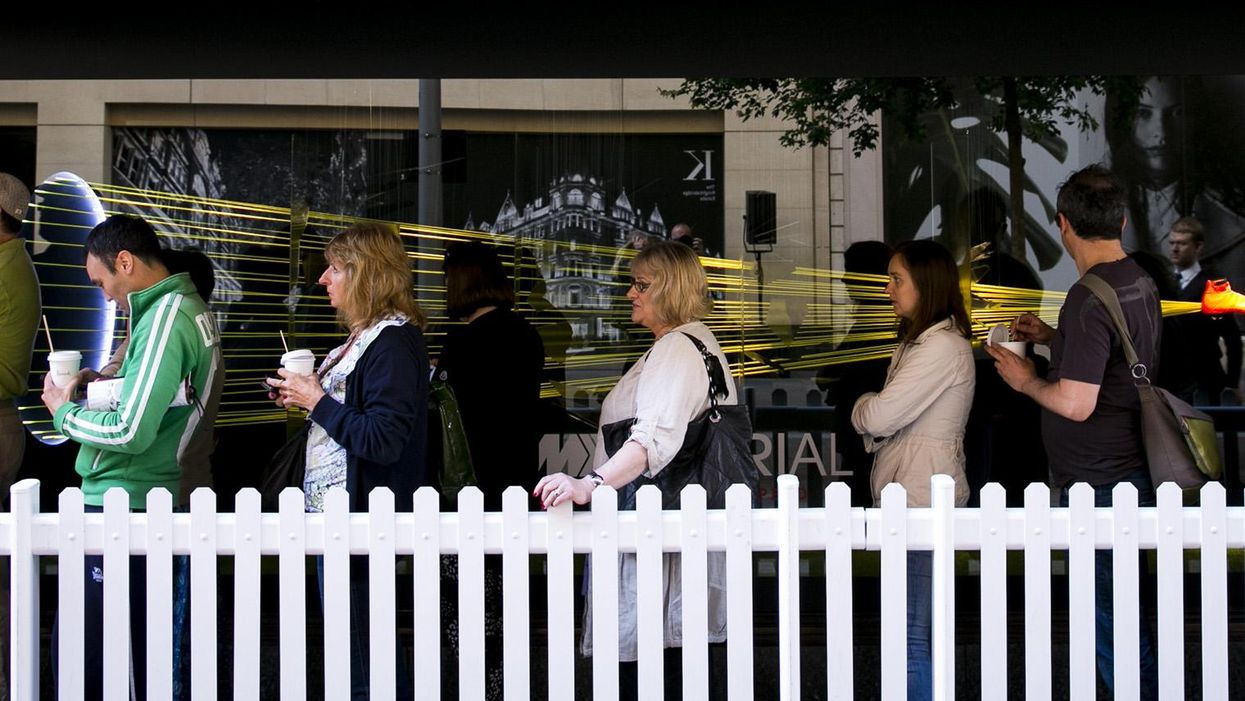News
Louis Dor
Jun 10, 2016

Picture: John Phillips/Getty Images
If you try to jump a queue you are essentially a waste of skin.
It's an unwritten rule in British society that you always queue, and if you choose to ignore this, you're reprehensible. No arguments.
So what are the rules to queueing?
New research by Tensator, a queue management specialists company, has essentially answered this, as Brits were asked about their queueing habits.
Here are our main findings:
1. Do not cut in
In total, 91.97 per cent of people found this "very annoying".
We've been very clear, there is no excuse.
You. Are. Not. An. Exception.
Sadly, only 66.34 per cent of us would confront a queue jumper though, as most prefer to complain to others or tut.
2. Do scrutinise others
The majority of us (81 per cent) say if we are in a queue we'll look at how friendly others are, judge their shopping basket contents and assess their clothing.
It's all everyone's doing, you may as well join in.
3. Do check social media
Many of us check Twitter when queuing - we hear the indy100 account is fantastic for a mid-queue peruse.
4. Do not talk to anyone
Apparently only 2.66 per cent of us will strike up a conversation while waiting to reach a till. The hivemind must be obeyed.
5. If it takes longer than six minutes, leave
This was the longest time that 43.52 per cent of us were willing to wait in a supermarket queue.
6. Don't get too close
Three quarters of us said that within touching distance of clothes was "too close" to stand next to someone.
You now know the gap, people. Adhere to it.
Dr Zsuzsanna Vargha, lecturer in accounting and organisation at the University of Leicester, said:
How people decide what is fair is societal, and we produce this understanding of fairness with our small actions such as queuing every day.
Queue jumping violates an understanding of equitable access. People are monitoring potential queue jumpers and even if they are not preventing or calling out the queue jumpers, they are deploying various ways to account for their behaviour.
We as social beings are very reluctant to allow a social situation to break down, and this is why people do not challenge queue jumpers.
Top 100
The Conversation (0)













